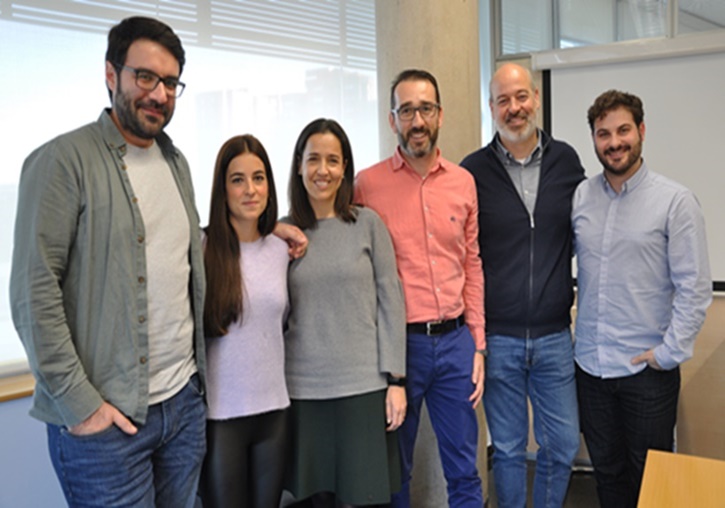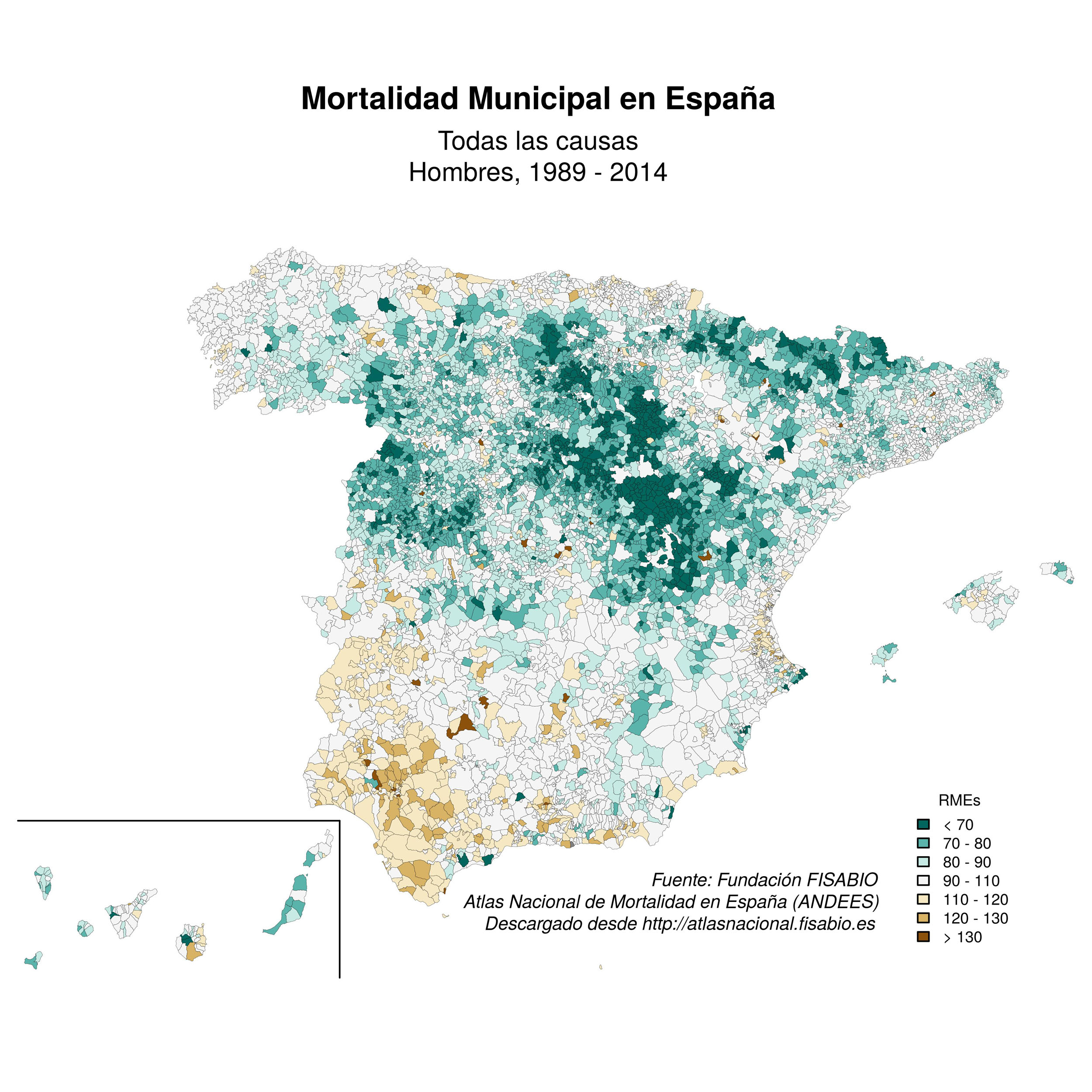An interactive atlas of Spain to know the causes of death and influence its prevention has been developed
- Scientific Culture and Innovation Unit
- February 6th, 2020

Research staff of the Bayensians Group of the Foundation for the Promotion of Health and Biomedical Research of the Valencian Community (Fisabio) and of the General Directorate of Public Health and Addictions of the Valencian Givernment have developed a digital atlas of mortality in Spain. The person in charge of the project is Miguel Ángel Martínez Beneito, professor of the Faculty of Mathematics Science of the University of Valencia.
It is an interactive tool that analyses separately all possible causes of death (grouped into 102 categories) in the 8,116 Spanish municipalities and allows to study in a combined way if there are geographical differences, in time and by sex.
The information provided by this new tool, built from free software, “has great value for prevention, since the maps reflect the distribution of risk factors that affect the causes studied”, says Martínez Beneito.
Diving through the generated maps reveals, for example, that in Valencia, the risk of cases of laryngeal cancer in men is 11% lower than in the rest of Spain. In Alicante city it is 17% lower and in Castellón de la Plana the data is equivalent to the rest of Spain.
In total, 9.5 million deaths have been analysed in the period between 1989 and 2014. The atlas sources are the National Statistics Institute (INE) databases but, unlike these, it allows a much more geographical analysis disaggregated (at the municipal level) and the visualisation of information temporarily dynamically.
Another of the novelties of the atlas is that the research staff has applied in all calculations smoothing models (the risk in each municipality should be similar to that of its neighbouring municipalities) to achieve rigorous results. This is especially relevant in municipalities with a low population density, which would otherwise yield wild results. Hence, researchers point out that the atlas allows knowing with statistical rigor the causes of death even in the emptied Spain where the amount of information available is quite scarce.
By combining all these factors, a significant amount of highly disaggregated data is achieved, small data in the words of the project manager despite the large volume (big data) of the database.
Significant results nationwide
The atlas also reveals that rural areas have a much lower mortality than urban areas except in cases of death from osteoporosis and fractures in women or traffic accidents. The tool also shows that AIDS mortality has gone from being fundamentally urban in the early 1990s to having a much more prominent presence in areas of Spain with lower income.
Other striking results produced by the atlas are that coastal areas with a residential presence from northern Europe show particular patterns (increased risk of lung cancer mortality in women or a sustained temporary decrease in the risk of heart attack throughout the study period) or that diabetes has a clear ascending pattern of risk from north to south.
For certain causes of mortality, the atlas evidences singular temporal evolutions in different geographical locations, such as in a brain tumour or viral hepatitis. In addition, some causes show clearly ascending trends throughout the study period. This is the case, for example, of myelodysplastic syndrome, which doubles its mortality rate throughout the study period and presents different evolutions in different geographical locations.
The causes of mortality that present the greatest geographical differences are generally the most unspecific, such as senility and cardiac arrest (the two diseases with the greatest geographical differences).
Free software and teamwork
The atlas is the result of several months of work of the Bayensians research group of the Fisabio Foundation and the General Directorate of Public Health and Addictions of the Valencian Government and, in part, has been funded with assistance from Fisabio and the Carlos III Health Institute in its 2016 Call for Strategic Health Action 2013-2016 Modality Health Research Projects (PI16 / 01004). At present, the project seeks new sources of funding both to exploit all the information it provides and to continue nourishing it with new data and guarantee its continuity.
All the software used to draw the atlas is free and the information it provides is of great value to guide health policies: for example, to identify geographic areas with unfavourable health indicators and, once the causes have been elucidated, design and implement corrective measures.


















